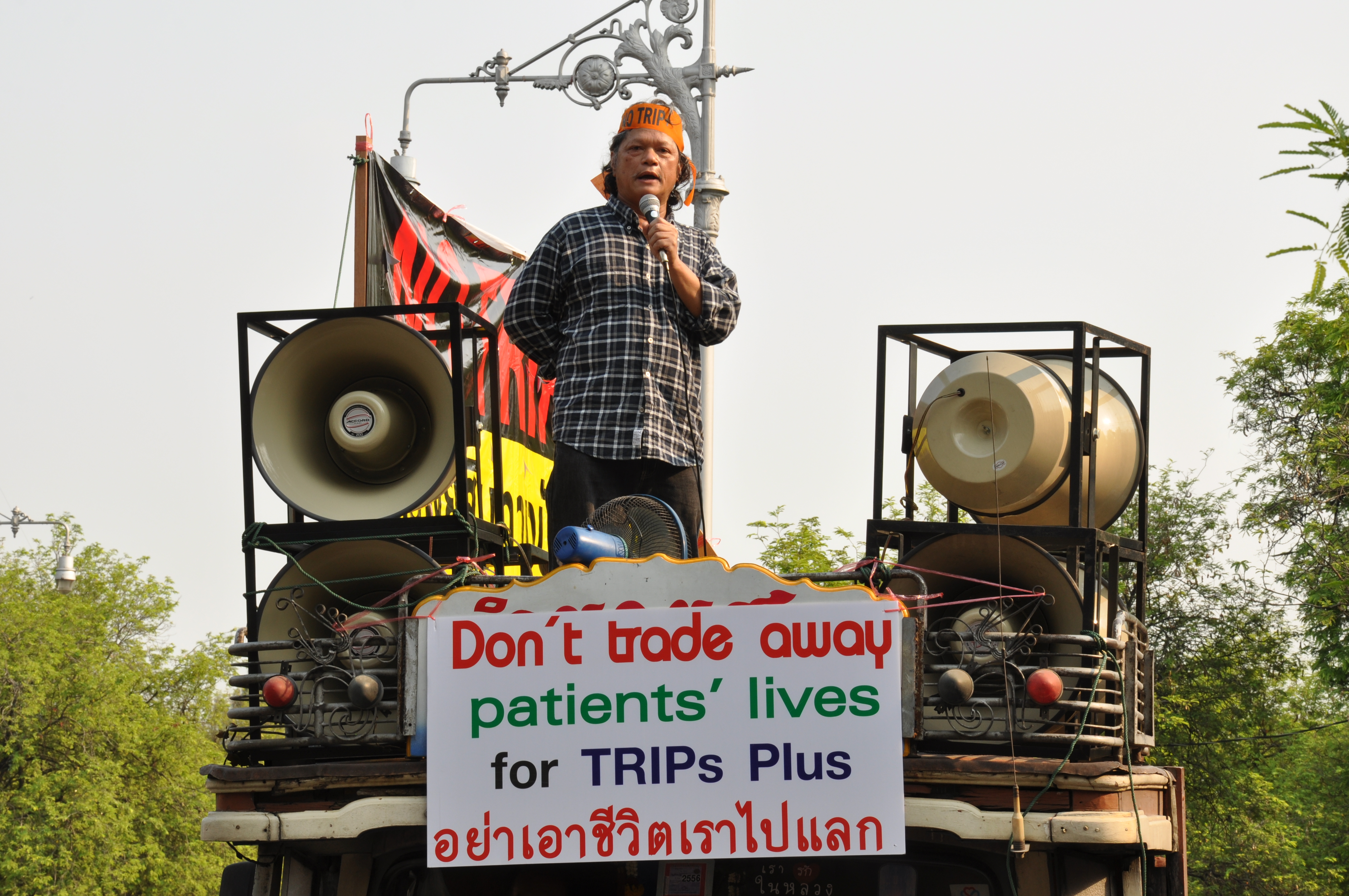Thai-EU talks could hinder access to affodable medicine, public health experts say

The Nation | 03-09-2013
Thai-EU talks could hinder access to affodable medicine, public health experts say
Pongphon Sarnsamak
Even though the first round of negotiations in Brussels on a Thailand-European Union Free Trade Agreement (Thai-EU FTA) were "as smooth as silk", observers say the second round of talks in Thailand later this month will be much tougher.
Round two will see strong opposition from more than 2,000 people from various civic groups in Thailand, including medical patients, consumers and farmers protesting against what they claim to be "unfair arrangements" set to be discussed under the FTA. These arrangements include extension of drug patents from 20 years to 30, which would increase the price of pharmaceutical products and make them unaffordable for many Thais.
The negotiations were officially launched on March 6 by European Commission President Jose Manuel Barroso and Thai Prime Minister Yingluck Shinawatra.
The first round took place in Brussels from May 27-31. Negotiating teams discussed issues involving goods, rules of origin, services and investment, public procurement, competition, intellectual property, trade remedies, and trade and sustainable development.
Negotiations are expected to conclude in less than two years, after which Thai exports to the EU will enjoy lower taxes under the Generalised System of Preferences (GPS) until 2015.
The next round of talks will be held in Chiang Mai, from September 16-20.
Even though the Thai-EU FTA will boost economic growth for both sides, Thailand could fall into a trap in the field of public health, Nimitr Tianudom, director of the Aids Access Foundation, said.
"The EU’s proposals under this FTA exceed the World Trade Organisation’s regulations and would take advantage of Thailand instead of creating benefits for both sides," he warned.
In the negotiations, the EU has pressed Thailand to speed up its registration process - to issue patents for drug products quickly as possible. If the EU decides that the process of issuing patents is taking too long, it will extend patent terms for drug products, or will use the "ever-greening" of patents, that is, to allow European drug makers to register a new product with old formulas that have undergone small adjustments.
"If we accept these proposals, we would be committing suicide, as we would no longer be able to access cheap medicines," Nimitr said.
Moreover, local drug makers would face difficulties producing generic drug products. The EU would require Thailand to tighten measures to protect data related to these pharmaceutical products when they are submitted for the registration process, complying with so-called "data exclusivity".
Thai authorities would also be asked to arrest those suspected of selling counterfeit pharmaceutical products along the country’s borders, without first investigating whether the products were fake or not.
Traders who suspected of selling counterfeit products will be listed as criminals.
European investors would also be allowed to file a complaint to arbitrators if they find that the government’s regulations affect their businesses.
Nimitr said that Thailand should take a page from India when it comes to negotiating with the EU, as India has not fallen into such "traps". India did not accept an extension of drug patent terms (by the EU) because they knew such an agreement would destroy its pharmaceutical businesses. The country is the world’s largest supplier of generic drugs.
"Even if free trade is unavoidable, any agreements made must be fair enough [for all] to agree to," he said.





